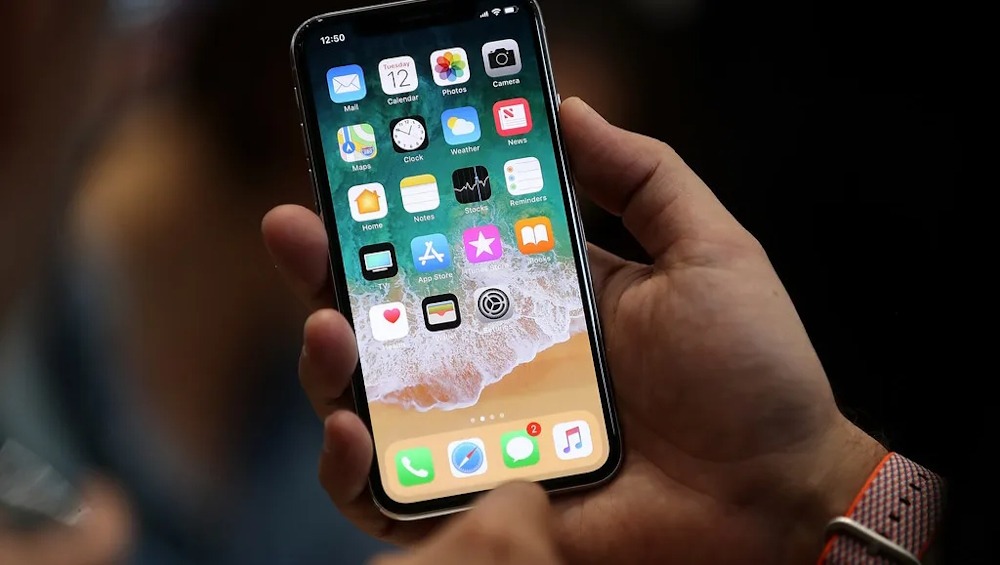Apple to develop AI capability for iPhone

Apple should consider giving itself more time to fully develop AI capabilities for its iPhones. The upcoming iPhone that Apple is set to unveil next week is poised to be a pivotal release for the company. Since the one a year ago, at least. And until whatever is released next year.
That is the situation for a company with a market capitalization of over $3 trillion that relies heavily on a single product line for over half of its business. Apple has made significant strides in diversifying its offerings in recent years. The introduction of services, Apple Watch, and AirPods have all played a role in reducing its reliance on a single product. However, a market segment that manages to sell over 200 million phones in a slow year, with prices reaching almost $1,000 each, certainly commands significant attention. Based on revenue for the 12-month period ended June, the iPhone business would be ranked as the 15th-largest company on the S&P 500. It surpasses the likes of Chevron, Ford, and General Motors, according to data from S&P Global Market Intelligence.
It is quite challenging for a business of that magnitude to achieve significant growth figures, particularly in a well-established market like smartphones. However, the iPhone has experienced a recent decline in performance, with a 2% drop in revenue during Apple’s fiscal year that concluded in September, and further slight decrease projected for the ongoing year, as estimated by FactSet. Therefore, there is great anticipation that the new phones will ignite fresh excitement, particularly because they will be the pioneers in integrating Apple’s cutting-edge artificial-intelligence technology. Apple’s stock price has experienced a significant increase of approximately 25% over the past six months, surpassing its competitors in the technology industry. The stock closed Wednesday approximately 6% below its record high from July, but it still commands a valuation of nearly 31 times forward earnings. This is 18% higher than its five-year average and a significant 48% premium compared to the S&P 500’s multiple, as per FactSet data.
There is a certain level of risk involved, particularly considering the tendency for Apple’s shares to decline when new iPhones are unveiled. There is an additional factor to consider this time: the uncertainty surrounding the potential impact of on-device AI on Apple’s iPhone sales. Historically, iPhone sales have been boosted by the introduction of new hardware features and design enhancements, such as larger screens and the integration of 5G technology. Apple’s latest AI developments are not particularly surprising. The company showcased its Apple Intelligence offering at its Worldwide Developer Conference in June.
Therefore, there is a wide range of expectations surrounding the upcoming iPhone 16. “Apple Intelligence is crucial for tapping into the untapped demand for iPhones and speeding up the replacement cycle,” noted Erik Woodring of Morgan Stanley in a recent communication. In contrast, according to a report by David Vogt of UBS on Wednesday, the AI-related offerings are not seen as compelling enough in the near term to generate significant demand.
Adding to the complexity is the fact that Apple Intelligence is not anticipated to be released until October. As a result, the software will not be included with the new phones that are likely to be available for sale later this month. Furthermore, it’s worth noting that not all AI capabilities will be accessible right from the start. The anticipated timeline for integrating ChatGPT with Apple’s Siri digital assistant is set for later this year.
Wall Street is anticipating a sales cycle that will have some distinct differences. Analysts are predicting a 4.5% increase in iPhone unit sales for Apple’s 2025 fiscal year, driven by the new phones set to be unveiled next week. Consensus estimates from Visible Alpha project a further 5.4% gain in the following year. “According to a report by Toni Sacconaghi of Bernstein, it is expected that the iPhone 16 will have moderate to high single digit revenue growth, while the iPhone 17 is anticipated to be even stronger,” stated the analyst on Tuesday.
Apple can still expect a solid iPhone cycle, even without relying on AI. The fact that there has been weak unit sales growth for three consecutive years suggests that many users are still using older devices, making them more likely to be in need of an upgrade. However, the recent surge in the stock suggests that investors have high expectations for Apple’s AI endeavors. Apple has a unique edge over other major tech companies. The hardware-focused business model has not necessitated a significant surge in capital expenditures for AI components in data centers, like Nvidia’s chips. It is yet to be determined if Apple can generate profits in the field of AI without making significant initial investments.










